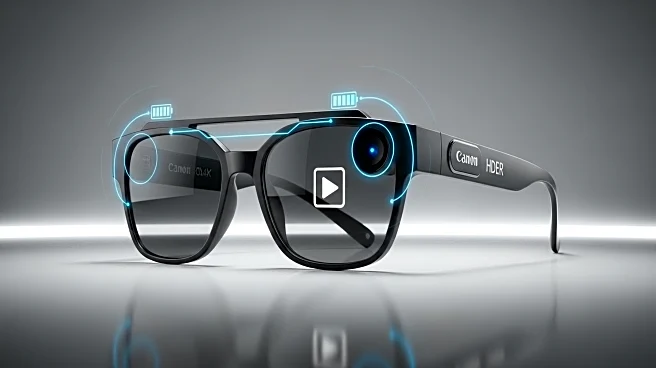What is the story about?
What's Happening?
Meta has released the second generation of its Ray-Ban-branded smart glasses, featuring significant improvements over the first generation. The Ray-Ban Meta Gen 2 smart glasses boast double the battery life of their predecessors, thanks to a new 'ultra-narrow steelcan' battery design. Additionally, the Gen 2 glasses offer enhanced video capabilities, supporting 3K resolution and 60 fps recording at 1080p. These improvements make the Gen 2 glasses more suitable for activities requiring high-quality video capture, such as sports. Despite these advancements, both generations share similar features, including Meta AI and a 12-megapixel ultra-wide camera sensor.
Why It's Important?
The advancements in the Ray-Ban Meta Gen 2 smart glasses highlight the rapid evolution of wearable technology, particularly in the realm of augmented reality and smart eyewear. The improved battery life and video capabilities make these glasses more practical for everyday use, potentially increasing their adoption among consumers. This development could influence the market for smart glasses, encouraging other manufacturers to enhance their offerings. The integration of advanced features like Meta AI also points to a future where smart glasses could become a more integral part of daily life, impacting how people interact with technology and consume media.
What's Next?
As Meta continues to refine its smart glasses technology, the company may focus on expanding the availability and functionality of these devices. Future iterations could see further improvements in battery life, video quality, and AI capabilities. Meta's ongoing development efforts may also lead to new applications and use cases for smart glasses, potentially transforming industries such as entertainment, education, and healthcare. Consumer feedback and market demand will likely shape the direction of future innovations in this space.
Beyond the Headlines
The rise of smart glasses technology raises questions about privacy and data security, as these devices have the potential to capture and transmit personal information. As smart glasses become more prevalent, there will be a need for clear regulations and guidelines to protect user privacy. Additionally, the cultural acceptance of wearing technology on one's face will play a role in the widespread adoption of smart glasses. The balance between technological advancement and ethical considerations will be crucial in determining the future of this industry.
















